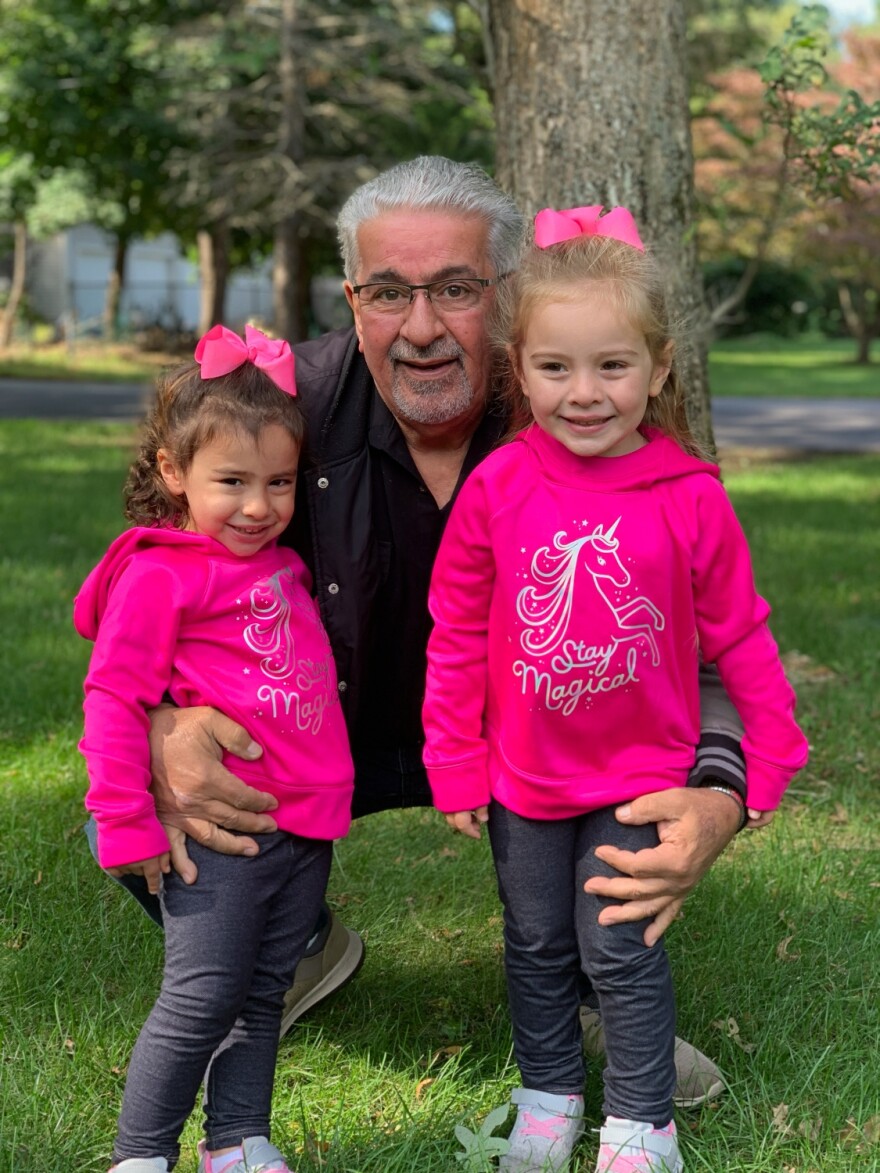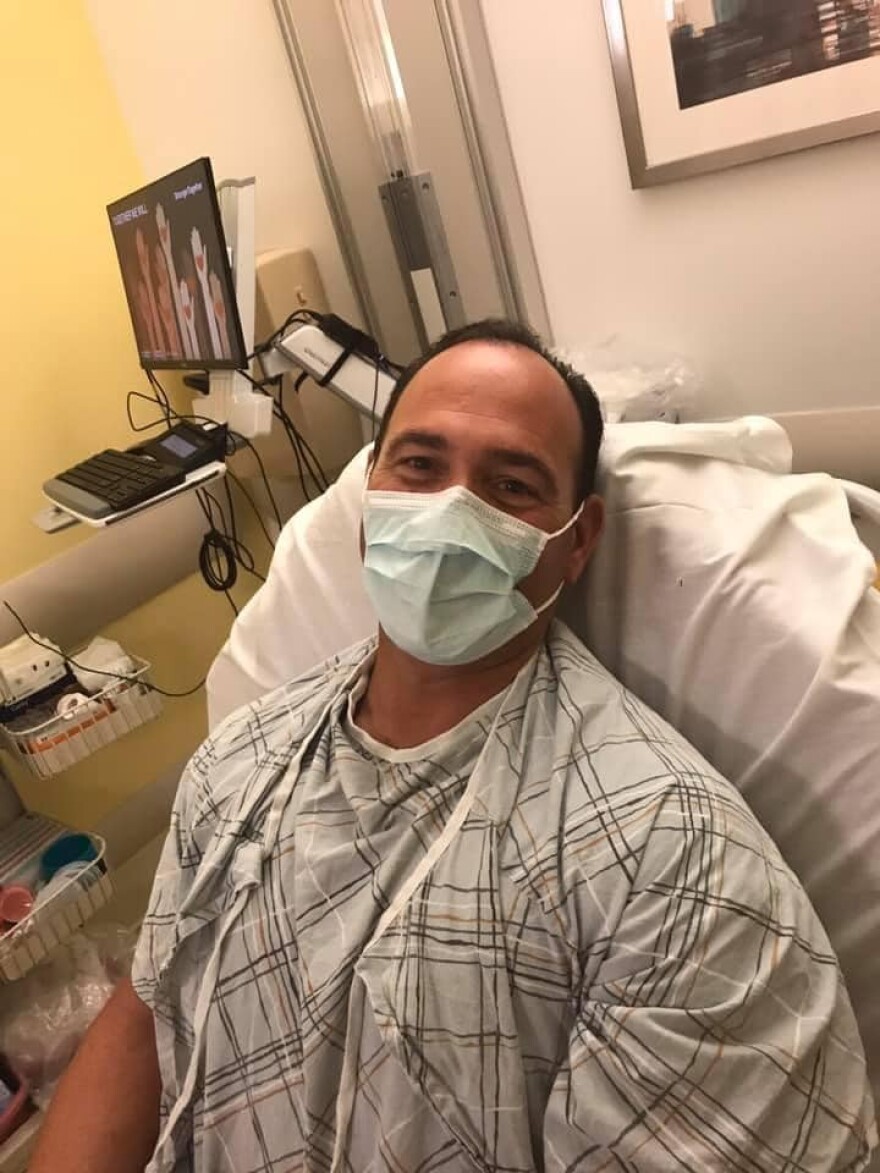The number of U.S. organ donors had plummeted this year during the pandemic. The shutdown of elective surgeries and refocus of healthcare services to handle COVID-19 is the main culprit.
Now, clusters of the virus have made New Yorkers on the transplant list anxious. Many are worried they still have a long wait ahead of them.

Robert Costa needs a kidney.
“One day, I just woke up with a bloody nose. Bad,” Costa said. “And I couldn't stop it.”
A year ago, Costa’s blood pressure had skyrocketed. The 68-year-old Farmingville man couldn’t eat or keep up with his grandchildren. These, Costa said, were his early warning signs that his kidneys were not working.
“My wife says we are getting you to the hospital right now,” he continued.
A year later, Costa is still on the transplant list. His anxiety has been terrible during the pandemic. His doctors told him that a new kidney could be available tomorrow, or it could be awhile because of a shortage of organ donations.
“People get kidney failure like crazy from this pandemic,” he said. “Because my doctor that I see, she’s telling me that she's so busy that she can't keep up with it. There's so many people now losing their organs from the disease, you know, and kidneys number one.”
The government contractor that manages the U.S. organ transplantation system, UNOS, found that living organ donations have dropped at least 90 percent to record lows since March. And organs from deceased donors also dipped by about half.
Dr. David Klassen, chief medical officer at UNOS, said the need has skyrocketed since a common secondary reaction to having COVID-19 is kidney failure.
“There's a lot of resilience in the system. And I believe that even with continued degrees of infection across the country, I think the transplant system should be able to function well and anticipate problems in advance of them becoming serious.”
But that’s not good news for patients like Robert Costa. He now undergoes dialysis three times a week for four hours at a time since going into total kidney failure.
“So now even my father needs a kidney but if we could raise awareness to help realize how easy it is to donate a kidney,” said Melanie Maiorca, his daughter. “We could save not only my dad and my kids, Pop Pop, but a lot of other people who are in need now who weren't in need even eight months ago.”
Desperate, Maiorca went to the social media platform TikTok to crowdsource for help.
“That video tried to show that while we are all being kept so far apart with COVID, one of the things that we all have is our family. And we're trying very hard to keep our family together, not just through COVID. But through this crisis with my father's kidney.”
He said he just wants to be there for his granddaughters.

Preparations made
Eventually, Robert Costa will likely undergo surgery at Stony Brook University Hospital on Long Island whenever a kidney becomes available.
“Many people suspect some kind of a second wave, hopefully not as severe as the first,” Dr. Frank Darras, medical director of kidney transplant at Stony Brook Medicine.”
Darras said that means now is a crucial time for live donors. Transplant surgeries are happening. Hospital systems have stepped up safety procedures to prepare patients and donors for the operation. That includes frequent COVID-19 testing. If either of them test positive for the virus, the surgery is a no-go.
A second wave of the virus in the Northeast could shut down non emergency procedures once again.
“The hard part for these people, and we do kidney transplants at Stony Brook,” Darras said. “We do about 80 a year. Today, we'll be number 69 for kidney transplants. The thing is, we have several hundred people on the waiting list, there are well over 100,000 people waiting for a kidney transplant in this country.”
Data show at least one New Yorker dies every day waiting for a lifesaving transplant

Living donors wanted
Guy Calla of Smithtown donated a kidney in September. He started the process in July, a year after his wife donated hers to his son’s friend. Calla called it a chain of donations, and hopes someone else will be inspired by him to donate.
“I didn't want to sit on the sidelines when all this was happening every day to so many people,” he said.
Calla doesn’t even know who got his kidney. Most transplants remain anonymous.
“It's really important to understand that you're affecting many, many people, not just, it's not a matter of you're just plugging a part in to somebody that needs it. You know, that person is a living soul that has a ripple effect into a family.”
A ‘legacy decision’
New York ranks the worst state in the U.S. in percentage of residents registered as organ donors.
Living organs last longer than organs from the deceased. Jim Gleason received a heart 25 years ago. He told WSHU’s C19 podcast that signing up to be an organ donor is a legacy decision that can change lives.
“Roberto Cuevas in Brooklyn, New York back in 1994, was attacked on the street as he was celebrating his 38th birthday, beaten about the head with a baseball bat. He ended up in a coma, which is not death. But 8 days later, his brain stopped. And as a brain dead patient, he was able to give the opportunity for life for others,” said Gleason, the national president of Transplant Recipients International Organization. He helps coordinate resources that make transplants happen.
“The question is, are you going to donate to the ground, or to save somebody's life,” he continued. “More and more people can realize, like Roberto's family, hey, rather than bury it in the ground, let's give it to somebody who can make use of it and live. And here I am, 25 years later celebrating an amazing hero, Roberto Cuevas.”


